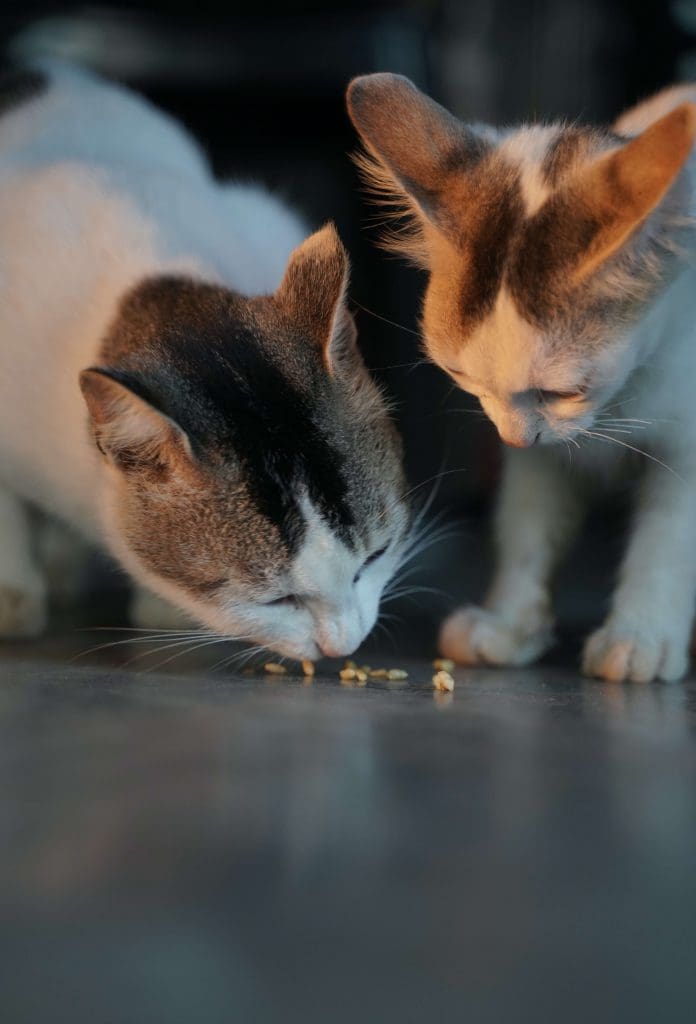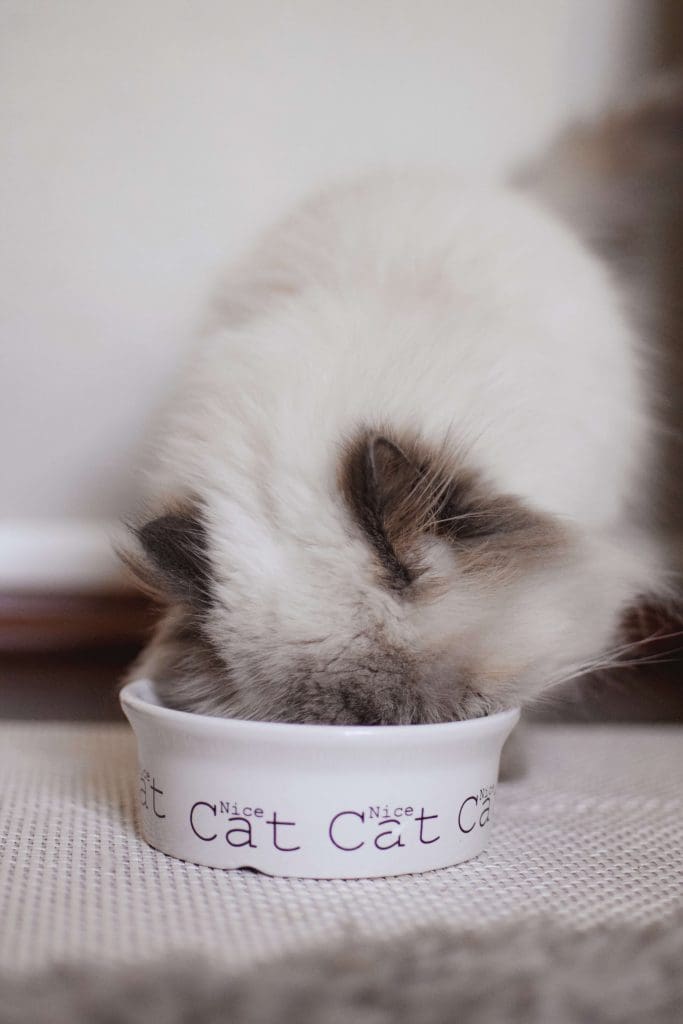We can count on our cats to let us know when their food bowl is empty, but what do you do when your pet is constantly demanding a second dinner?
A big enthusiasm for kibble may simply be a part of your cat’s personality, but changes to their appetite can be an indicator of underlying health or behavioral issues. If you’ve noticed increased hunger or changes in your pet’s weight, it’s important to investigate. Here are a few of the most common explanations for your cat’s fixation on food.
 Feline Diabetes
Feline DiabetesIf your cat is suddenly ravenous, their increased appetite may be related to elevated blood sugar.
Feline diabetes is a disease that interferes with the production of insulin, the hormone that regulates blood glucose. If left untreated, diabetes can cause severe damage to cats’ nervous systems and possibly lead to death.
One of the biggest risk factors for feline diabetes is obesity, which is why it is particularly important to manage your pet’s eating and exercise habits before they lead to health concerns. This is especially true for cats that belong to other higher-risk groups, including:
As cats get older, their risk for thyrotoxicosis, or hyperthyroidism, increases. This condition usually occurs when a benign growth on the thyroid glands stimulates an overproduction of hormones. Because so many organ systems are affected by thyroid hormones, an unusually large appetite will typically appear alongside other symptoms, like:
Particularly for young kittens, cats who spend time outdoors, or cats that have been recently adopted from a shelter, intestinal parasites may be the explanation for a voracious appetite.
Roundworms, hookworms, and tapeworms live in the digestive tract and steal nutrients from their hosts. Infected cats may beg for seconds because they are trying to feed themselves as well as their parasites.
If you suspect your cat or kitten may be infected, make an appointment with your vet to get your pet on the appropriate dewormer.

For cats, it’s all about the chase. Though domestic felines may spend hours each day napping by a sunny window, they retain their ancestors’ instinct to stalk prey. Food is just the byproduct of a successful hunt.
Cats who don’t get enough stimulation from exercise or play may find that mealtime leaves something to be desired. Just like we may find ourselves standing in front of an open fridge or mindlessly snacking in front of the TV, cats can overconsume food when they are bored or disengaged.
Managing your cat’s over-the-top appetite always comes down to identifying the root cause and addressing your pet’s needs.
If you’ve noticed changes in your cat’s weight or appetite, it’s important to rule out underlying medical conditions. Schedule a wellness exam to evaluate your pet’s risk for disease and check on their body condition score (BCS).
Your vet can make specific dietary recommendations that can help your cat feel more satisfied at meal times, like incorporating lower-calorie wet food.
Many cats graze throughout the day without issue, but pets who are struggling to regulate their appetite may overconsume food if they aren’t fed on a schedule.
Setting regular mealtimes and measuring your cat’s food can prevent overfeeding and help get your cat into a healthier daily rhythm of play, sleep, and food.
Remember that cats live for the hunt! If you’ve determined that your cat’s overeating is due to boredom, liven up meals by serving their food on a lick mat or adding kibble to a puzzle toy that rewards them for their hard work.